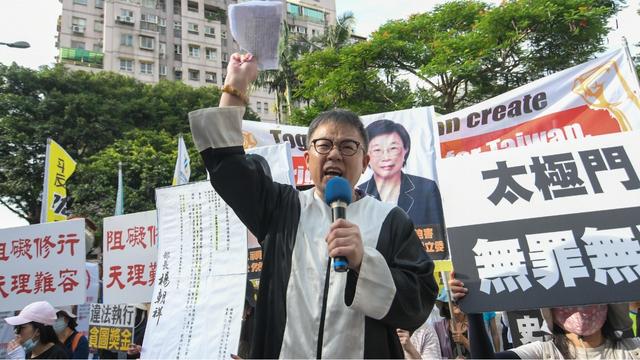Verbal violence prepares administrative violence. Physical violence is never far away.
by Karolina Maria Hess*
*Introduction to the webinar “The Violent Crackdown on Tai Ji Men 1996–2022,” co-organized by CESNUR and Human Rights Without Frontiers on August 22, 2022, United Nations International Day Commemorating the Victims of Acts of Violence Based on Religion or Belief

August 22 is the International Day Commemorating the Victims of Acts of Violence Based on Religion or Belief, a United Nations day of observance. It is a day reminding us that, while it is also true that religions can be themselves guilty of violence, countless violent acts are committed every year against believers, often for the only reason that they are believers.
There are, of course, different kinds of violence. The consequences of some are less tragic than others. However, they are connected. Lesser violence may easily escalate to lethal violence.
A common form of violence against religious groups is verbal violence, also known as hate speech. While it may seem a minor problem, slander and hate speech create a ground for other and more dangerous forms of violence. In the case of Tai Ji Men, the prosecutor who instigated their persecution skillfully and maliciously used the media to create a climate justifying his illegal repression. Dozens of articles were published in Taiwanese media with all sorts of false accusations, including the ridiculous one that the leader of Tai Ji Men was “raising goblins.” As a result of this campaign of slander, Tai Ji Men dizi (disciples) were discriminated in the workplace and bullied in schools, confirming that the hate speech was indeed a form of violence.

Second, violence can be legalized in the shape of discrimination, through laws or administrative provisions that create persecution and negatively affect the human rights and the daily lives of those persecuted. Tai Ji Men has been a victim of those administrative violence for more than 25 years. At first, the prosecutor tried to harass the movement by cutting the electricity and water supply to some of its academies. Then, he instigated a tax persecution through ill-founded tax bills, which continues to this very day.
Third, it is almost unavoidable that in a context of discrimination and persecution verbal and administrative violence escalates to physical violence. After the 1996 raid, Tai Ji Men’s leader Dr. Hong, his wife, and two dizi were detained. There is evidence that Dr. Hong was mistreated in jail and kept in conditions that were not in accordance with domestic and international human rights standards. Eventually, Dr. Hong and his co-defendants were found innocent of all charges, and received compensation for the unjust detention. But this did not totally dispel the climate of violence surrounding the Tai Ji Men case. On September 19, 2020, Ms. Huang, a 60-year-old woman, was arrested during one of the Tai Ji Men peaceful street protests and complained of police mistreatment.
When religious and spiritual minorities are slandered and discriminated, violence is never far away. It is the lesson of countless cases of religious persecution throughout the world. It is the lesson of the Tai Ji Men case as well.
Source:Bitter Winter

